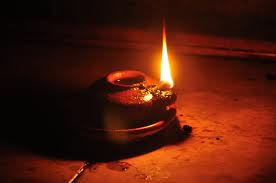[[Sister O'Neal, why would adopting some of the things some CV's say are necessary (garb, vows, required prayer of the entire Liturgy of the Hours, full time parochial employment, etc) mean that the consecration should be used for apostolic Religious who are also virgins?]]
 Sorry I wasn't clear about this. Consider this a corollary to my post on not consecrating women living secular lives IF canon 604 does not govern an uncompromised secular vocation. The adoption of the things you mention indicates a mitigated and even compromised secularity rather than a thoroughgoing one. If they are really essential to the vocation it begins to lose it's distinctive gift quality to the secular and post-Vatican II world. The vocation ceases to say to those leading secular lives, for instance, that they are called to an exhaustive holiness which can be achieved in their secularity. It begins to say separation from the saeculum is necessary for true holiness. Thus, if the CV's we are consecrating are required to become quasi-religious because the elements of religious life they adopt which make them less secular are necessary to the vocation, then it only makes sense that every Religious who is a virgin should also receive this consecration. After all, they live the elements of religious life which separate them from the world more radically than CV's without all the limitations of vows of poverty, obedience, Rules of life, Constitutions and Canon Laws. Even further, it makes sense that they should receive the consecration BEFORE any women who have not (yet) been adequately formed in the elements of religious life and who are still living a wholly secular life.
Sorry I wasn't clear about this. Consider this a corollary to my post on not consecrating women living secular lives IF canon 604 does not govern an uncompromised secular vocation. The adoption of the things you mention indicates a mitigated and even compromised secularity rather than a thoroughgoing one. If they are really essential to the vocation it begins to lose it's distinctive gift quality to the secular and post-Vatican II world. The vocation ceases to say to those leading secular lives, for instance, that they are called to an exhaustive holiness which can be achieved in their secularity. It begins to say separation from the saeculum is necessary for true holiness. Thus, if the CV's we are consecrating are required to become quasi-religious because the elements of religious life they adopt which make them less secular are necessary to the vocation, then it only makes sense that every Religious who is a virgin should also receive this consecration. After all, they live the elements of religious life which separate them from the world more radically than CV's without all the limitations of vows of poverty, obedience, Rules of life, Constitutions and Canon Laws. Even further, it makes sense that they should receive the consecration BEFORE any women who have not (yet) been adequately formed in the elements of religious life and who are still living a wholly secular life.
 My point is that the vocation today has two clear expressions, one cloistered and the other secular. The first speaks especially to Religious (though not only to them) and is a kind of intensification of certain dimensions of their vocations; the second speaks especially (though not only) to those living secular vocations and is an eschatological witness to what secularity is meant and destined to be. If the vocation on the other hand is really only "secular" in the "weak sense" of not taking place in a monastery amongst cloistered nuns, then we should only be consecrating women who ARE separated from the world in significant ways. Only two groups of women really fit that criterion, nuns and apostolic or ministerial Sisters. Of course, the simple fact is that most of these women would not need or want this consecration, even if their relationship with Christ is specifically nuptial. They are already consecrated and the graces attached to the consecration don't necessarily add to the graces of their vocations as they stand right now. Unless c 604 consecration brings something truly distinctive to the Church and world it ceases to make sense or speak prophetically to people; neither are its graces uniquely pertinent. The only element of this vocation as it is being lived out in today's Church which really allows this prophetic speech and serves to make the vocation truly distinctive and a unique gift is its (consecrated and eschatological) secularity.
My point is that the vocation today has two clear expressions, one cloistered and the other secular. The first speaks especially to Religious (though not only to them) and is a kind of intensification of certain dimensions of their vocations; the second speaks especially (though not only) to those living secular vocations and is an eschatological witness to what secularity is meant and destined to be. If the vocation on the other hand is really only "secular" in the "weak sense" of not taking place in a monastery amongst cloistered nuns, then we should only be consecrating women who ARE separated from the world in significant ways. Only two groups of women really fit that criterion, nuns and apostolic or ministerial Sisters. Of course, the simple fact is that most of these women would not need or want this consecration, even if their relationship with Christ is specifically nuptial. They are already consecrated and the graces attached to the consecration don't necessarily add to the graces of their vocations as they stand right now. Unless c 604 consecration brings something truly distinctive to the Church and world it ceases to make sense or speak prophetically to people; neither are its graces uniquely pertinent. The only element of this vocation as it is being lived out in today's Church which really allows this prophetic speech and serves to make the vocation truly distinctive and a unique gift is its (consecrated and eschatological) secularity.
There is NOTHING wrong with being called to a secular vocation in the fullest sense or to being called to witness to the eschatological and consecrated nature of authentic or redeemed secularity. I believe being called to do this is an incredible gift (charism) of the Holy Spirit to our world and Church today. But if this is NOT what canon 604 vocations are meant to be, then we must stop consecrating women living secular lives and, to the degree virginal Religious women request it, begin consecrating those who have truly discerned, are formed in, and live lives which are at once religious and appropriately ministerial without being or becoming secular.


































































